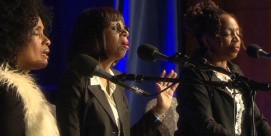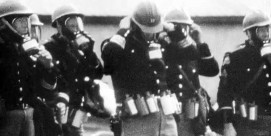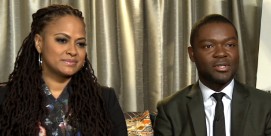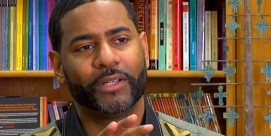Reflections On Our Pastor: Dr. Martin Luther King, Jr.
In 1999, two Baptist ministers published a compilation of the recollections of 34 parishioners who were members of Dexter Avenue Baptist Church in Montgomery, Alabama when the Rev. Martin Luther King Jr. was their pastor from 1954 to 1960. Read two excerpts from REFLECTIONS ON OUR PASTOR: DR. MARTIN LUTHER KING, JR. AT DEXTER AVENUE BAPTIST CHURCH (The Majority Press, 1999), edited by the Rev. Wally G. Vaughn and the Rev. Richard W. Wills:
Dexter was a status quo church. The membership was small. You could get a seat on any Sunday. I remember Rev. King preaching. He was a blistering orator. Words rolled from his lips like rain. After his arrival, the increase in attendance was obvious even to a child.
Shortly after Rev. King arrived the bus boycott started. I did not have a clear vision of what was going on in 1955 and 1956. Nevertheless, as a boy I could tell something unusual, different, and radical was happening. You could feel it in the air. Any thinking child over six or seven knew that something big was happening in Montgomery. Black people were acting different. It was as if something had come over the members of my race. As a boy, I knew something was happening that was going to change my life and condition. I knew it was going to change the lives of all black people. It reached the point at church on Sunday that the sanctuary overflowed and people were in the lower level of the church listening to Rev. King. It was these signs that clued the children in that something big was taking place in Montgomery. …
When I was about 12 years old, my mother pulled me aside one day. She said: “David, it is time for you to be baptized.” The decision was completely mine, but I agreed with her. It was time for me to get baptized. My mother went on to say: “I want Rev. King to baptize you. This is important to me. Rev. King is going to be famous.” Looking to the future and at me, she added: “And he is going to be in history books one day.”
My mother envisioned the joy and pride I would have in manhood being able to say, “I was baptized by Rev. Martin Luther King, Jr.” … To the mind of a boy, being baptized by Rev. King was almost like being baptized by Jesus. I knew Rev. King was a man, a human being just as I was, but considering who he was and the impact he was making, I knew that the hands of a rare individual were lowering me into the water.
I was thoroughly acquainted with the old black preacher, who was great and played a valuable role in the black community. However, in Rev. King I saw all of the dedication, richness and power of the old black preacher plus much more. For example, Rev. King did not talk like a preacher. He used an easy conversational voice and never spoke at certain times in a preacher’s tone.
I was awed by his preaching. He wrote his sermons out, but preached without a manuscript or notes. His manuscript was always left behind. …There was a pathos in his voice. He was always serious. There was never anything frivolous in his discourses. He had a very inquisitive mind. …
Dexter was an affluent church. However, the one lesson I learned under Rev. King’s leadership was that members of affluent churches also appreciated pastoral visits. After preaching a high-powered sermon, a preacher has to wind down. Rev. King also used his Sunday evening home visits as a winding-down period. On many Sunday evenings he taught a Bible study class.
Rev. King had a clarity about the pastorate. Occasionally he was absent on Sunday. Some members felt that he should pay his substitute, as was the custom in those days at some churches. I remember Rev. King saying to all interested parties: “You are alluding to my position as a 11:00 a.m. to 12:00 job on Sunday. I hold the position of pastor all week.”
Rev. King was a hard-working, diligent pastor who took his duties seriously. He visited members, visited the sick, and did all of the traditional pastoral duties. His rebuttal was terse and clear. All listeners understood what he was saying. Rev. King was clear in his mind about who a pastor was, the role of a pastor, and what being a pastor was about. …
The bus boycott and the movement started. As the leader, Rev. King had a monumental task. He was called to lead some fiery individuals who were very difficult to guide. However, he could undress them in a meeting with his humility.
People elevated him. He was their leader. However, Rev. King was always amazed and awed by this elevation. He never thought of himself or saw himself as anyone more than a humble servant.







